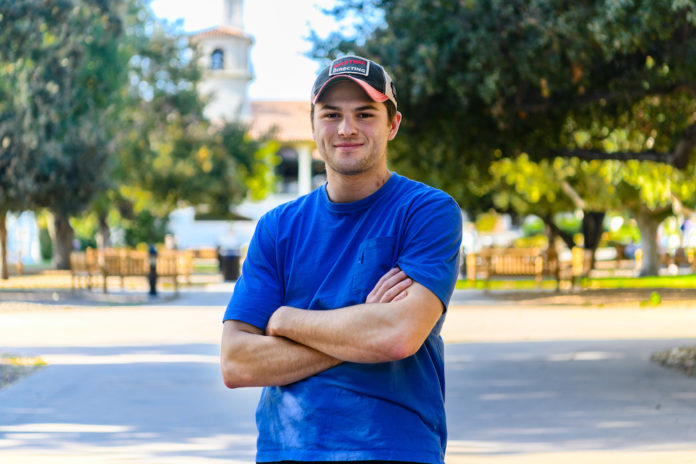
Some Occidental students will be cheering a little harder than others during March Madness this month. 47 million Americans are projected to bet $8.5 billion dollars on the NCAA tournament, according to the American Gaming Association, and while the share of college athletes nationwide placing bets is decreasing, some Occidental students still take part in this form of gambling.
A self-described casual better, Tyler Sweeney (junior) occasionally wagers anywhere between $10 and $50 per bet on professional basketball, baseball and football. Even though he is an economics major, it is not data analysis that he uses to make his choices, Sweeney said.
“If you’ve watched enough basketball, you start trusting in your knowledge,” Sweeney said. “I had a hunch recently, when the NBA Slam Dunk Contest took place, that Derrick Jones Jr. was gonna win, not even looking at the odds or anything. He ended up winning, and I made 30 bucks.”
Sweeney played basketball for Occidental for two years, but he said he left the team this academic year to pursue other opportunities on campus, like doing play-by-play commentary for the Occidental College Athletics livestream. Like sports broadcasting, Sweeney said betting offers him a way to stay involved in sports and enjoy the rush of emotions that comes along with the game.
“Playing sports gives you an adrenaline rush that I really miss,” Sweeney said. “Betting [recreates that] in a way. A lot of people just ‘like’ watching the game. But if you actually have your own stake in it and you have your own money on the line, then you’re screaming at the TV. And money-wise, I’m going very light, easy.”
Part of why Sweeney’s betting remains low-stakes is that he is no longer a student-athlete. The NCAA strictly prohibits athletes and athletics faculty from legally or illegally gambling on collegiate or professional games, as it is potentially an outside influence on the outcome of the game. According to professor Lynn Mehl, who teaches sports psychology at Occidental, student athletes can lose their eligibility to play if they are found to be gambling.
“There are literally hundreds of apps for sports betting,” Mehl said. “There’s a push for legalization. It’s projected that in 2022, it will be legal in all 50 states. It all makes gambling much more accessible to students who do it for fun.”
For a few Occidental students, however, gambling is not merely fun, but a thrilling, rigorous process with high stakes and the potential for easy money. One such student*, a former Occidental athlete, bets using legal and illegal sites numerous times each week. Because they bet frequently, they tend to somewhat overlook each individual loss or gain in favor of the overall weekly trends.
“I finished down last week because I lost a lot on Sunday, but later I was up like $700,” the student said. “But across a week, let’s say I risk about $700 to win $600–$800. I finished out. I had only finished out $80 last week, like short $80. Overall I’ve earned a good profit.”
The student said their largest loss and largest win have both been between two and three thousand dollars. With higher stakes, they do research to try to maximize the statistical soundness of their predictions.
“My old roommate, who graduated, was a math minor,” the student said. “He’s big into the analytics side of this, so we will take the statistics on how teams have done. But of course, you never really know what’s going to happen.”
The student said they began gambling with friends before they could do so legally. Sweeney also said he sometimes pools bets with friends, each chipping in a smaller amount in order to meet a website’s minimum wager. As a psychology professor, Mehl is interested in the social and behavioral aspect of sports gambling, particularly among students.
“There are parties surrounding it, an entire atmosphere that’s created by sport,” Mehl said. “There are certain groups on campus that may gamble more, and part of it is because that’s the culture of the group that they hang with. If you choose to affiliate, you are more prone to accept that behavior.”
According to Mehl, gambling is a complex behavior influenced by many factors such as NCAA division, gender, sport type and financial status. But regardless of these factors, Mehl said gambling can become a habit that can be hard to control.
“It’s called intermittent reinforcement, because what happens is you win every once in a while and that becomes an addictive behavior,” Mehl said. “Educators have the role of giving that information and trying to guide. But at some point, it’s up to the individual to assess the risk.”
*The Occidental has omitted the student’s name in accordance with our anonymous source policy. For more information on anonymity, visit our Frequently Asked Questions.
![]()


































